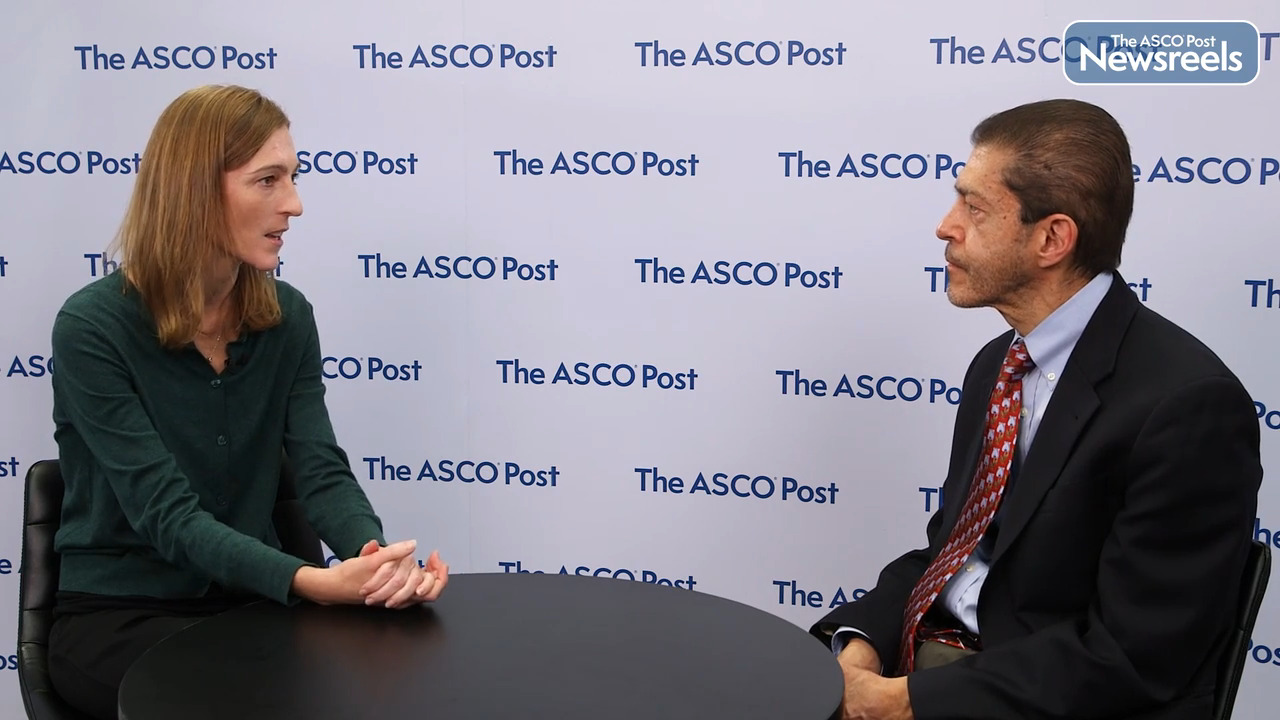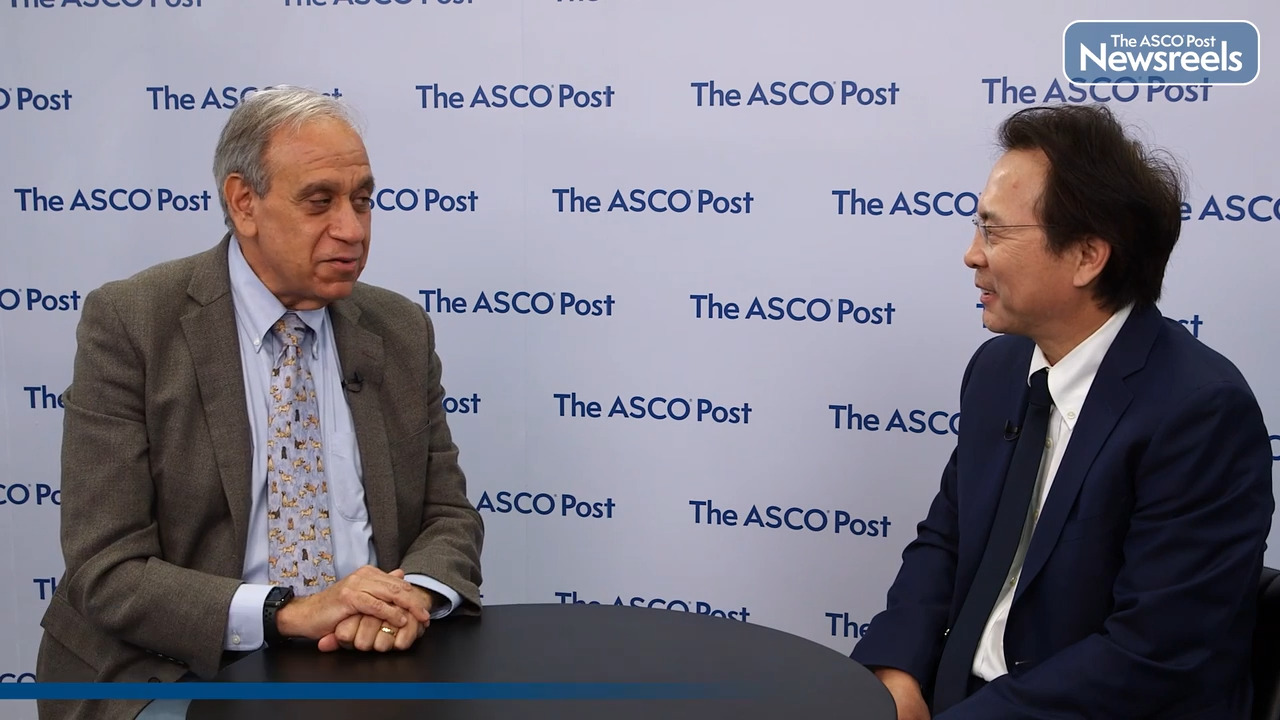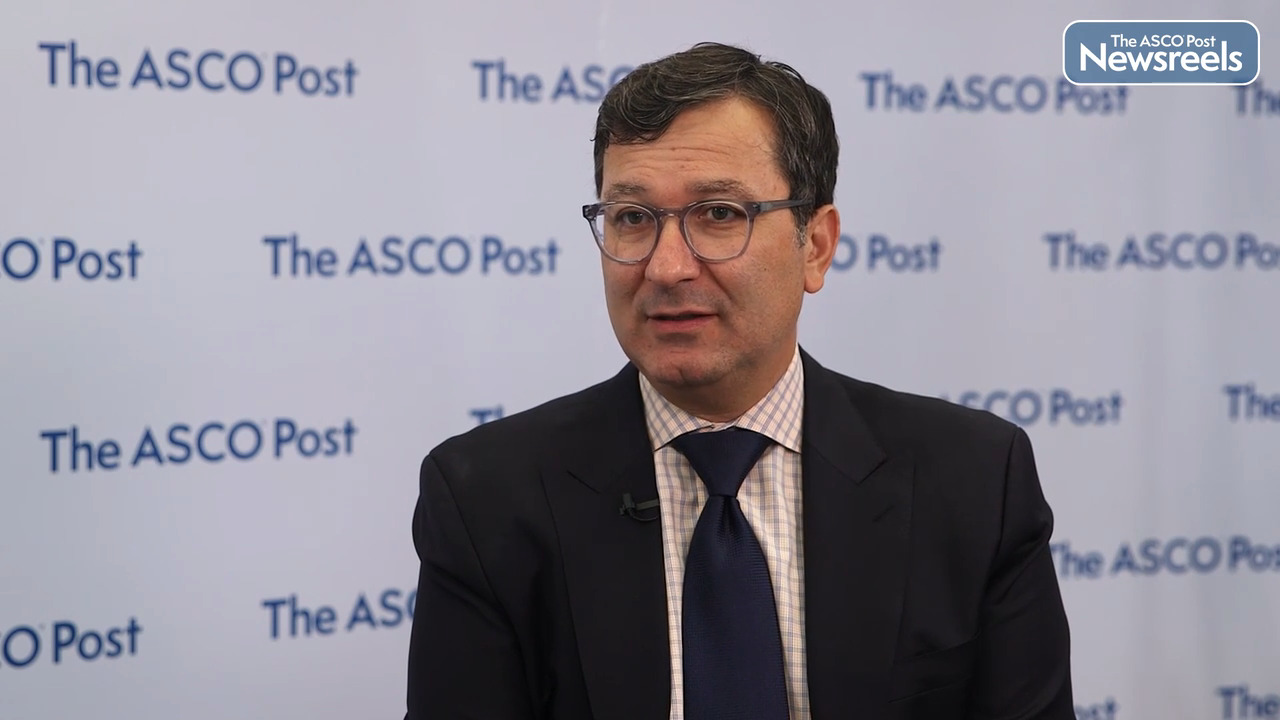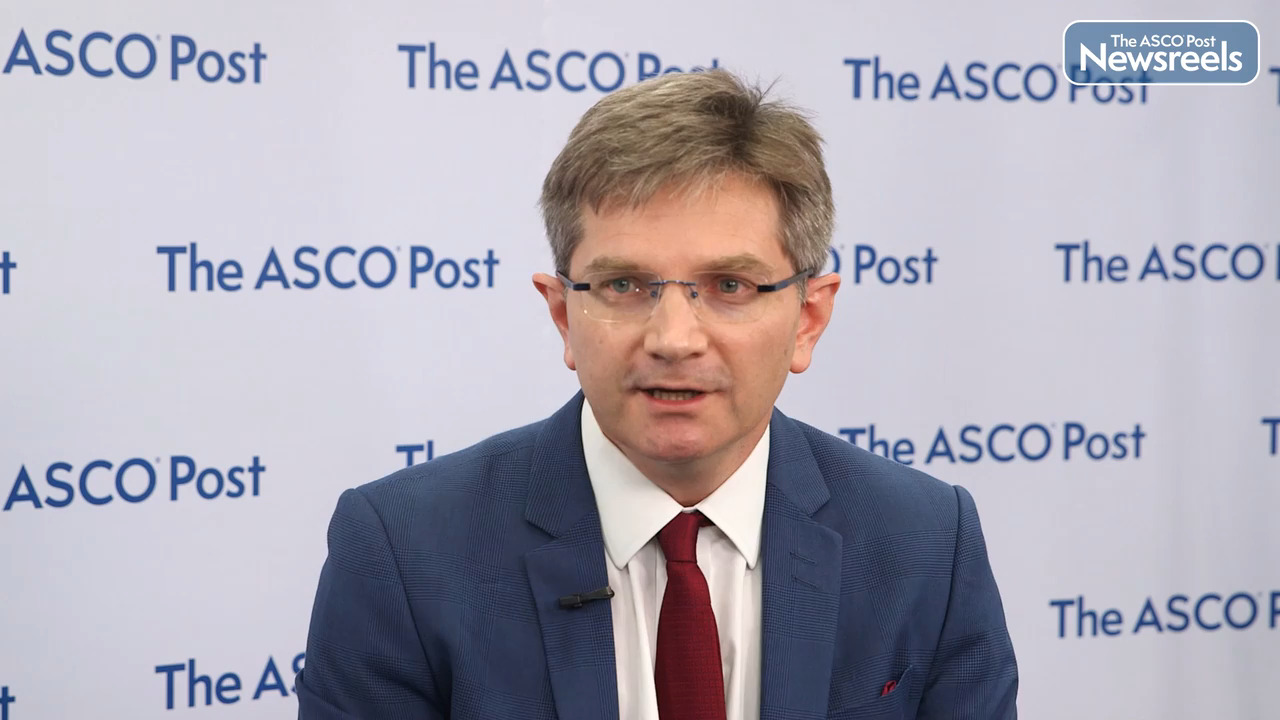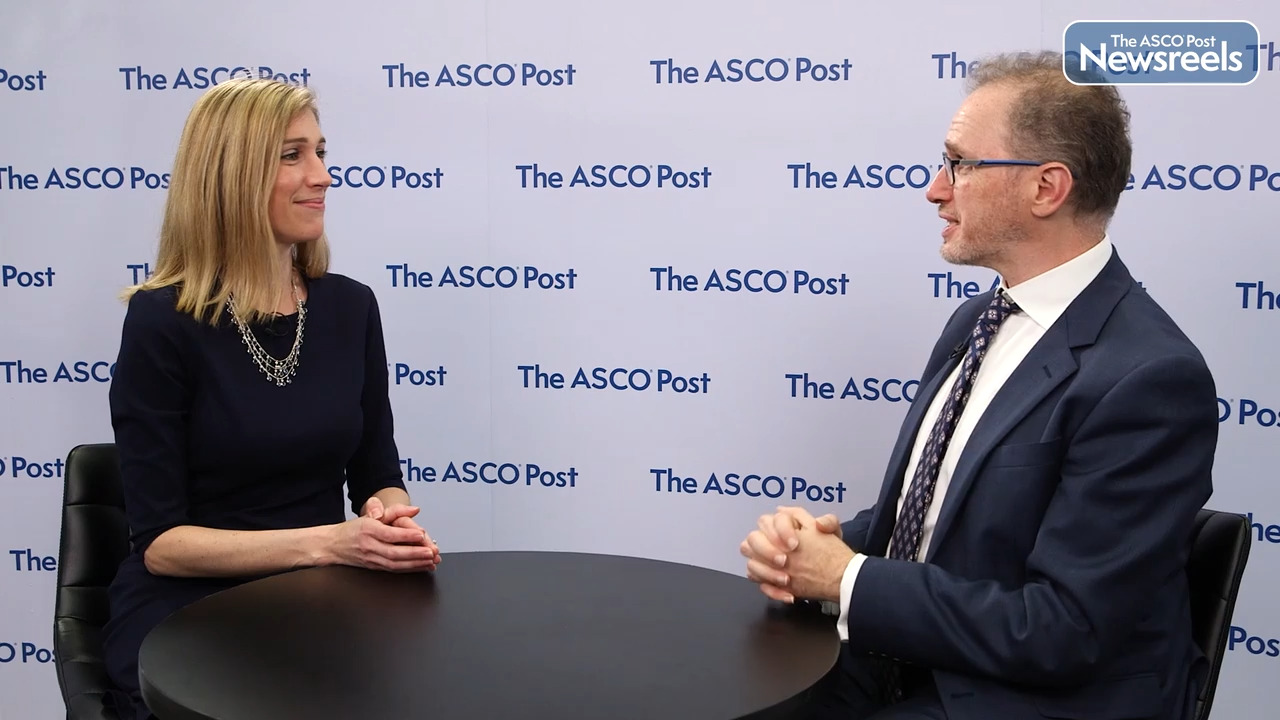Akihiro Ohba, MD, on Biliary Tract Cancer: New Findings on Fam-Trastuzumab Deruxtecan-nxki
2022 ASCO Annual Meeting
Akihiro Ohba, MD, of Japan’s National Cancer Center Hospital, discusses phase II data from the HERB trial on fam-trastuzumab deruxtecan-nxki, which showed activity in patients with HER2-expressing unresectable or recurrent biliary tract cancer (Abstract 4006).
Transcript
Disclaimer: This video transcript has not been proofread or edited and may contain errors.
The HERB trial is an investigator-initiated, multicenter, single-arm Phase II trial which evaluate the efficacy and the safety of trastuzumab deruxtecan, T-DXd, in patient with HER2-expressing biliary tract cancers. In 2016, when we began to design this study, there were no effective second-line chemotherapy regiments and no effective targeted therapies for biliary tract cancers. Moreover, even breast and gastric cancers, T-DXd did not have strong evidence, but the early efficacy signs of T-DXd in breast cancer and the HER2-positive rate in biliary tract cancer made us decide to conduct this trial.
Before we ran the trial, we examined the tissue sample of more than 400 biliary tract cancer cases by HER2 testing and found that HER2 expression patterns were more similar to gastric cancer than breast cancer. We used the diagnostic criterion for this trial. Patient was screened in 30 Japanese centers taking part in the SCRUM-Japan project and the trial was conducted in five of these 30 centers. A key inclusion criteria was histologically confirmed unresectable or recurrent biliary tract cancer, centrally confirmed HER2-expressing status and refractory or intolerant to treatment, including gemcitabine. The primary endpoint was confirmed objective response rate in HER2-positive patient by blinded independent central review, BICR.
During my year, we enrolled 32 patient, 24 HER2-positive, and eight were HER2-low-expressing. Two ineligible patients were excluded from the efficacy analysis. Of the 22 HER2-positive eligible patients, the primary endpoint of the confirmed objective response rate was 36.4%. Among the eight HER2-low-expressing patients, one patient achieved a partial response. The duration of response, progression-free survival and overall survival, was longer than we expected.
In terms of adverse events, the most common adverse events were hematological toxicities such as anemia and neutrophil count decreased and white blood cell count decreased. They were more frequent than in clinical trials of T-DXd in other cancer types. Interstitial lung disease occurred in 25% of patient, including two grade-five cases. Also, we could not find obvious risk factors. We should pay attention to all this when we're using this drug, especially for biliary tract cancers.
We think that T-DXd showed promising activity in HER2-expressing biliary tract cancers. Further evaluations are needed to confirm these findings in this patient population. On the other hand, such a large-scale trial is difficult for a limited population of HER2-positive biliary tract cancers, and we also discussed the way of drug approval based on the result of this study. I hope that such an effective drug will be available in our clinical practice.
Related Videos
The ASCO Post Staff
Courtney D. DiNardo, MD, MSCE, of The University of Texas MD Anderson Cancer Center, and Jorge E. Cortes, MD, of Georgia Cancer Center at Augusta University, discuss phase III results from the ASCEMBL trial, which showed that after more than 2 years of follow-up, asciminib continued to yield superior efficacy and better safety and tolerability vs bosutinib in patients with chronic myeloid leukemia (CML) in chronic phase. These results continue to support the use of this kinase inhibitor as a new CML therapy, says Dr. Cortes, with the potential to transform the standard of care (Abstract 7004).
The ASCO Post Staff
Andrew D. Zelenetz, MD, PhD, of Memorial Sloan Kettering Cancer Center, and Michael L. Wang, MD, of The University of Texas MD Anderson Cancer Center, discuss primary results from the phase III SHINE study, which showed that ibrutinib, in combination with bendamustine/rituximab and rituximab maintenance, may set a new benchmark for patients aged 65 or older with mantle cell lymphoma. With a median progression-free survival of 6.7 years, the ibrutinib combination is more beneficial than currently used chemoimmunotherapy (approximately 1.5–3.5 years) (Abstract LBA7502).
Karim Chamie, MD, of the University of California, Los Angeles, discusses final clinical results on combining the superagonist N-803 with bacillus Calmette-Guérin (BCG) in patients whose carcinoma in situ and high-grade non–muscle-invasive bladder cancers are unresponsive to BCG alone. Of note, cystectomy was avoided in more than 90% of patients with 2 years of follow-up (Abstract 4508).
The ASCO Post Staff
Benoit You, MD, PhD, of Lyon University hospital (HCL, France) and GINECO group (France), discusses findings from the GOG-0218 trial of patients with ovarian cancer, which appears to confirm earlier data on the link between poor tumor chemosensitivity and benefit from concurrent plus maintenance bevacizumab. In Dr. You’s validation study, patients who derived the most progression-free and overall survival benefit from bevacizumab were those with high-risk disease (stage IV or incompletely resected stage III) associated with an unfavorable KELIM score (CA-125 kinetic elimination rate constant, calculable online) (Abstract 5553).
The ASCO Post Staff
Alicia K. Morgans, MD, MPH, of Dana-Farber Cancer Institute, and Michael S. Hofman, MBBS, of Peter MacCallum Cancer Centre, University of Melbourne, discuss follow-up results on LuPSMA vs cabazitaxel in patients with metastatic castration-resistant prostate cancer progressing after docetaxel treatment. The findings suggest that LuPSMA is a suitable option for this population, with fewer adverse events, higher response rates, improved patient-reported outcomes, and similar overall survival compared with cabazitaxel (Abstract 5000).
